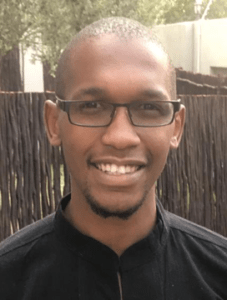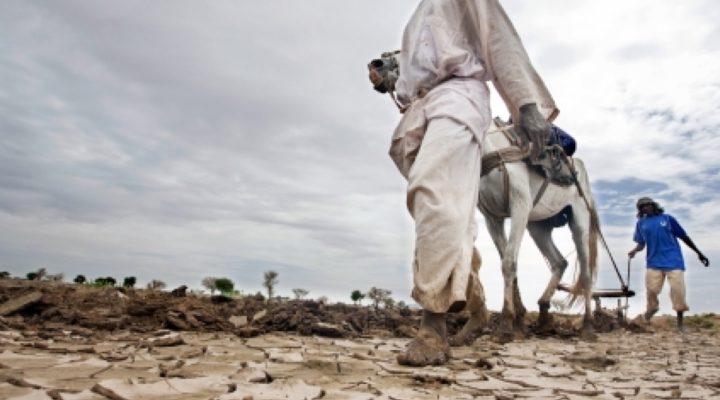American’s aren’t the only ones watching the Biden administration with hope for realistic confrontation of climate change. Africans are among the global community now hoping the United States will step up to help save the planet.
“The science of climate change in Africa is undeniable,” according to Herman Cohen, a former U.S. assistant secretary of state for African affairs and former U.S. ambassador to Gambia and Senegal.

Herman Cohen
In a Nov. 17, 2020, article published by the Council on Foreign Relations, Cohen said the new administration in Washington has a chance to leave a positive mark in Africa.
Climate change in Africa is “already destroying crops, causing floods and droughts, and subjecting impoverished people to severe heat waves, … spreading hunger and desperation while helping violent extremists gain a foothold,” he wrote.
This matters because Africa relies heavily on agriculture for revenue and sustenance, he explained. “Climate change is afflicting both food production and freshwater availability in Africa, which already struggles to provide these basic necessities. Fortunately, Africa has nearly 60% of the world’s arable land, and with support, it could feed people on both the continent and around the world.”
To that end, he suggested the Biden administration should vigorously focus on supporting food production and agricultural modernization and consider building capacity for desalination to protect Africans from the effects of worsening water shortages.

Happy Khambule
Happy Khambule of Greenpeace Africa wants the Biden administration to assist the continent in renewable energy.
Biden, he said, “may encourage African countries to begin phasing out fossil fuels or leaping over them and support just transition plans to renewable energy in the world’s fastest-growing continent. This is key to avoid climate chaos and expand economic opportunities in the continent and at the same time … encourage African countries to end oil, gas and coal extraction and beneficiation.”
Even though African nations bear some of the least responsibility for the global acceleration of climate change, some already have ambitious plans to tackle the climate crisis. One way the Biden administration could help, Khambule said, is to “show a sign of support to African nations … by indicating U.S. support for their initiatives and leadership.”
The Pan African Climate Justice Alliance, a civil society group focused on addressing climate change and environmental issues on the African continent, praised Biden’s electoral victory and commitment to rejoin the Paris Agreement, which Donald Trump revoked as part of a denial of the seriousness of global climate change.
“In leaving the Paris Agreement, former President Trump terminated $3 billion to the Green Climate Fund,” the Alliance explained. “We urge the U.S. to make significant contributions to all major funds set up to pay for climate action around the world, particularly the Adaptation Fund, and work through its bilateral institutions such as USAID to invest in local-led adaptation projects that directly improve the lives of some of the most vulnerable groups in Africa.”
Much of the carbon dioxide emissions that have fueled climate woes in Africa primarily emanated from Western industrial complexes.
Such a request is justified, the Alliance contended, because so much of the carbon dioxide emissions that have fueled climate woes in Africa primarily emanated from Western industrial complexes.
Across Africa, climate change is creating more violent and disruptive weather. Mozambique recently was hit by Cyclone Eloise, which let loose a fury of flooding. Yet in other places on the continent, climate change has been blamed for drought and shrinking body waters such as resource-rich Lake Chad. This, in turn, has led to loss of revenue and job opportunities for many inhabitants of Niger, Cameroon, Nigeria and Chad.
The economic problems, in turn, open the door for jihadist groups like Boko Haram and ISWAP to brainwash and recruit jobless youths to their ranks.
The activities of the terrorist groups, which keeps increasing by the day, has created the worst instability and hunger in the region for as long as many can remember, with refugee camps scattered across the countries.

Chigozie Chikere
If Americans won’t support climate aid for Africa for any other reason, they should see the present situation as a threat to national security. Chigozie Chikere, lecturer at the Institute of Maritime Studies, University of Lagos, said: “The Biden administration, having identified climate change as a driver of insecurity, will do well to include its security implications in not just the Pentagon’s homeland planning but also in America’s foreign policy to engender a revolution in Africa’s risk analyses, strategy development and planning guidance as regards the menace of climate change.”
Another tangible way the United States could help Africa confront the fallout of climate change, in Cohen’s view, is by assisting Africa’s electricity generation capacity. The United States’ Power Africa Program was initiated by former President Barack Obama and sustained by Trump, as well as by focusing on improving renewable energy, tree planting and tackling piracy.
Yet such help mustn’t stop African countries from working to improve their own situations, Chikere said. “African leaders must prioritize investment in agriculture and food systems, not only as an economic agenda, but as a security agenda. Governments must make agriculture profitable and attractive to young people. Young people need to be involved in the planning, design and implementation of agricultural policies.”
“African leaders must prioritize investment in agriculture and food systems, not only as an economic agenda, but as a security agenda.”
In that, for the U.S. to model the political will to tackle a complex and difficult issue like climate change would have ripple effects across the globe, Khambule suggested.
“The African union has solid plans and programs in place to deal with underlying conditions that give rise to insecurity, but the required political will and resources need to be mobilized,” he said. “Should that be achieved, climate change will not make things worse in those areas but will be far more manageable than it is now.”
Anthony Akaeze is a native Nigerian who lives in Houston and covers the Africa beat for BNG.


